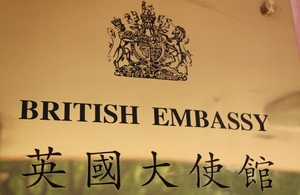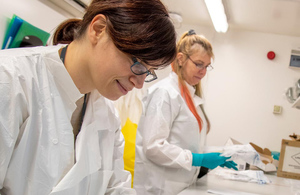Good morning. It is a great pleasure to be here with you for GSA’s summer briefing and I’d like to thank you for inviting me to talk to you as we come towards the end of what has clearly been a very challenging academic year.
My name is Simon Lebus, and I am Interim Chief Regulator at Ofqual. I am going to use this session to talk about this year’s assessment arrangements and will also reflect a little on 2022 and beyond.
I started in the job on 4 January, the day this summer’s exams were cancelled. As a result, much of my time as Chief Regulator of exams has been devoted to dealing with the arrangements for the teacher assessment that is replacing them, a change that would in normal times be considered revolutionary, and which would be preceded by years of debate, consultation, and piloting.
In practice, we have had to roll these new arrangements out in a matter of months, an incredibly short period of time given the scale and complexity of what is being done. This week marks a key milestone for all of us as teacher assessed grades are due to be sent to exam boards on Friday and I want to take the opportunity to thank you for all that you have been doing to make that possible.
I am very aware of the extra burden of work that this has placed on teachers and also the potentially rather invidious position in which it places you – balancing the need to be fair and dispassionate in exercising your professional judgement with the desire to see your students do as well as possible in the context of a dreadful 18 months during which they (and you) will have experienced a huge amount of disruption and uncertainty. I know also, in some cases, that the challenge of managing that tension has been further compounded by anxiety about heightened and occasionally intrusive parental interest and expectation.
I know from some of the feedback I have seen that the switch to these novel assessment arrangements has been difficult, not least because the flexibility that has been designed into them to support students’ and schools’ widely different experience has also meant that much is left to teacher discretion in a way that is very different to the normal exam experience. I know that that has also led to concerns about fairness and consistency, and we have had that very much in mind in designing this year’s quality assurance regime. That is part of the rationale for asking centres to compare grades against previous years when exams took place so that any substantial variance can be explained. I am well aware from my time running exam boards that there is a high level of year-to-year variance to be expected even in normal times, but I think this is a useful sense check given that the normal navigation aids of standardisation and moderation are not this year being deployed.
I am sure this is also behind some of the concern about appeals which was very evident when we were consulting about this. As a result, and in response to some of the feedback, we are limiting the school or college’s role to a procedural check for errors. If the student remains dissatisfied after the centre’s check, then the centre will send the appeal to the exam board who will consider whether the teacher assessed grade was a reasonable exercise of academic judgement based on the evidence available.
More generally, I think it is important to emphasise that this a very high threshold to meet. This year’s arrangements are based on teachers’ holistic judgement and there will not be scope, as in a usual year, for speculative appeals where a candidate is near a grade boundary because that is not the nature of the grading judgement that is being applied, a point we will be seeking to emphasise in our communications over the next few weeks.
As I mentioned earlier, I spent several years running Cambridge’s various exam boards, including OCR, and was always very struck whilst doing so that, perhaps unsurprisingly, exams were generally suffered rather than loved as an institution, albeit that they were generally felt to be the fairest and most reliable method for managing student progression. In this context, interestingly, the experience of being without exams seems to have stimulated a strong desire to return to using them in 2022. The final decision on that lies with government, but what is clear is that next year’s arrangements will need the resilience to be able to cope with what is still a very uncertain public health situation and will need to reflect the reality that the cohort sitting them will have suffered a measure of learning loss, and in the case of A level students, will not previously have sat public exams.
Looking beyond 2022, it is interesting to reflect how we can expect the pandemic to impact exams and education more generally. Pearson has set up a Commission on the future of assessment and the Times, more ambitiously perhaps, on the future of education. This reflects the reality that we are living through a sea change and I am sure there will be more commissions to come.
What is that going to mean for assessment? Clearly one of the big issues is going to be the scope for further deployment of technology. Some of that is to do with practical issues – the ability to take exams online and to sit them remotely, using remote invigilation. Longer term, however, I expect there to developing interest, in particular in the use of AI both for purposes of adaptive assessment – potentially much less stressful for students – and even ultimately to support human judgement in marking.
I hope too that, following this year’s experience, teacher training and CPD will incorporate a greater emphasis on the principles and practice of good assessment. It is such an important part of the educational process, and the best way to guarantee its value and equity as a method of supporting progression is for there to be widespread understanding of how it works.
All that lies ahead. Before then, we face the challenge over the next few weeks of making sure that this year’s arrangements fall smoothly into place. In concluding, may I once again thank you for your help and support in making that happen.


